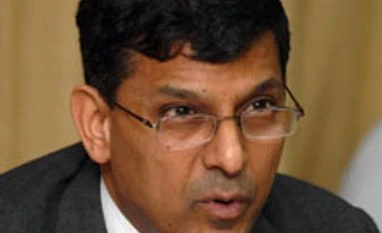Addressing investors at a Citibank event in New York, Rajan said economy has slowed to below 5% from an average of 8% between 2002-2012, mainly on account of domestic factors.
The slowdown is "largely a result of domestic factors (institutional weakness, withdrawal of stimulus) and one-third due to global factors,", Citi said in a release today quoting Rajan.
Also Read
The then Finance Minister Pranab Mukherjee gave three stimulus packages to the industry to combat the impact of global financial meltdown of 2008.
The current account deficit (CAD), which is the difference between inflow and outflow of foreign exchange, rose to a record high of 4.8% of GDP in 2012-13, from 2.8% in 2010-11.
Following the measure taken by the government and the RBI to increase inflow and restrict gold imports, the CAD moderated to 3.1% of the GDP in first half of current fiscal. It was at 4.5% in H1 of 2012-13.
"Efforts to rein in the CAD have worked with the deficit likely to come in at sub 3% of GDP from 5% last year," he said.
On a more long-term basis, Rajan hoped that inflation indexed bonds would help reduce gold demand.
Referring to fiscal deficit, he said the budget target of 4.8% of GDP is likely to be met, "but could result in a contraction in spending, depending on the extent of revenue shortfall".
The fiscal deficit stood at 4.9% in 2012-13.
Rajan said there was a need to improve the financial system by clarifying monetary policy framework, strengthening the banking structure through new entry or bank expansion and broadening financial markets, among others.
You’ve reached your limit of 5 free articles this month.
Subscribe now for unlimited access.
Already subscribed? Log in
Subscribe to read the full story →

Smart Quarterly
₹900
3 Months
₹300/Month
Smart Essential
₹2,700
1 Year
₹225/Month
Super Saver
₹3,900
2 Years
₹162/Month
Renews automatically, cancel anytime
Here’s what’s included in our digital subscription plans
Access to Exclusive Premium Stories
Over 30 subscriber-only stories daily, handpicked by our editors


Complimentary Access to The New York Times
News, Games, Cooking, Audio, Wirecutter & The Athletic
Business Standard Epaper
Digital replica of our daily newspaper — with options to read, save, and share


Curated Newsletters
Insights on markets, finance, politics, tech, and more delivered to your inbox
Market Analysis & Investment Insights
In-depth market analysis & insights with access to The Smart Investor


Archives
Repository of articles and publications dating back to 1997
Ad-free Reading
Uninterrupted reading experience with no advertisements


Seamless Access Across All Devices
Access Business Standard across devices — mobile, tablet, or PC, via web or app



)
